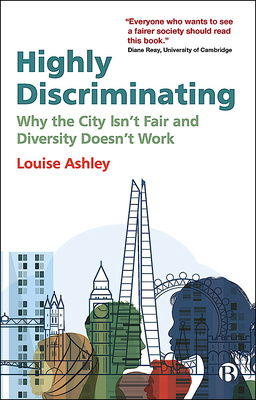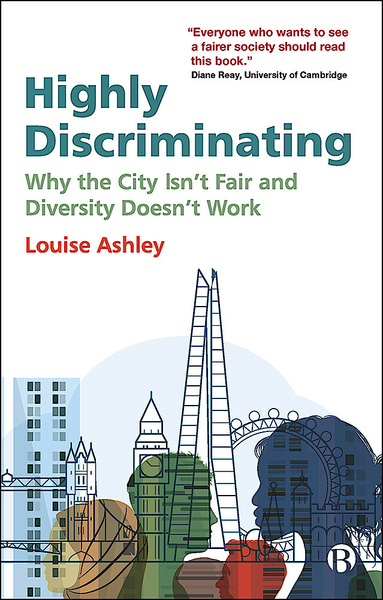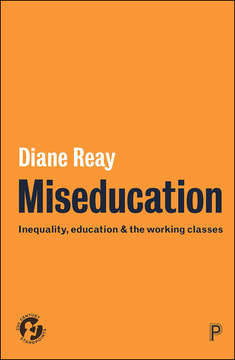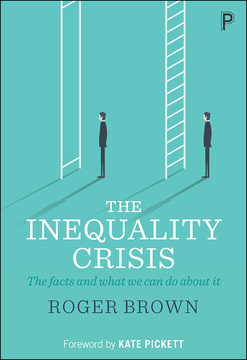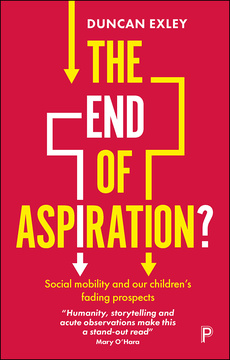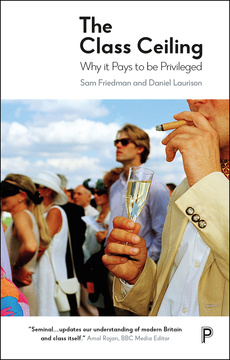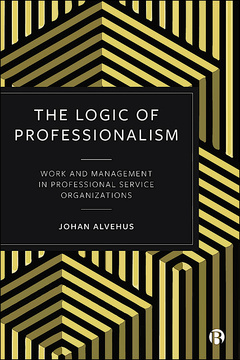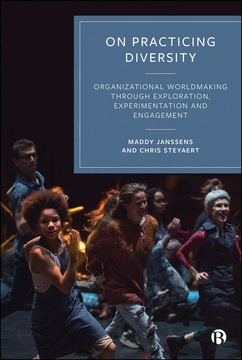Published
2 Sep 2022Page count
310 pagesISBN
978-1529227673Dimensions
216 x 138 mmImprint
Bristol University PressPublished
2 Sep 2022Page count
310 pagesISBN
978-1529209648Dimensions
216 x 138 mmImprint
Bristol University PressPublished
2 Sep 2022Page count
310 pagesISBN
978-1529209662Imprint
Bristol University PressPublished
2 Sep 2022Page count
310 pagesISBN
978-1529209662Imprint
Bristol University PressOn the blog:
Remodelling masculinity is the best way to tackle sexism in the City
Why diversity doesn’t work in the City of London
The City still runs on nepotism in The Spectator
Less elitism, more inclusion: the legal industry aims for change in The Financial Times
Class and the City of London: my decade of research shows why elitism is endemic and top firms don’t really care in The Conversation
How subtle forms of sexism in financial services led to recent City scandals – what research shows in The Conversation
London is a major reason for the UK’s inequality problem. Unfortunately, City leaders don’t want to talk about it
in The Conversation
Why does the City of London, despite an apparent commitment to recruitment and progression based on objective merit within its hiring practices, continue to reproduce the status quo?
Written by a leading expert on diversity and elite professions, this book examines issues of equality in the City, what its practitioners say in public and what they think behind closed doors.
Drawing on research, interviews, practitioner literature and internal reports, it argues that hiring practices in the City are highly discriminating in favour of a narrow pool of affluent applicants, and future progress may only be achieved by the state taking a greater role in organizational life. It calls for a policy shift at both the organizational and governmental level to address the implications of widening inequality in the UK.
“Highly Discriminating by Louise Ashley leads a herd of sacred cows to the slaughter.” The Spectator
“Why have decades of equal opportunity initiatives in professional contexts failed, despite the strong ethical and business case in their favour? This extremely insightful and thought-provoking book addresses that counter-intuitive problem.” Daniel Muzio, University of York
“Informed by many years of research into the City’s recruitment and selection processes, this book vividly exposes the contradictions which pervade its diversity initiatives. An essential book for anyone concerned about the inequalities which blight the UK today, it is also a fascinating read.” Hilary Sommerlad, University of Leeds
"An excellent short book revealing how large City institutions have sought to distance their recruitment practices from accusations of discrimination by proclaiming their commitment to diversity and meritocracy. [Ashley] reveals how these constitute legitimating myths that serve to protect the organizations from criticism whilst still effectively reproducing the inequalities previously identified Anybody interested in social mobility, particularly into high paid jobs in the City should read this book.” Glenn Morgan, University of Bristol
“Ashley's wide ranging study chips away at the sector's espousal of merit to show that inequality, discrimination and disillusionment are hard-wired into the City. An important book.” Philip Roscoe, St Andrews University
“This is surely destined to be a landmark text. With razor-sharp precision, Ashley cuts through the glossy corporate promise of ‘diversity’ to reveal how the City both generates, and profits from, profound class inequalities.” Sam Friedman, London School of Economics and Political Science
“Debunks the myth of meritocracy within elite City firms, and challenges many established truths about diversity initiatives. The interviewees’ stories make for painful reading, which is why they must be read.” Laura Empson, Bayes Business School, City, University of London
“In this groundbreaking book, Ashley has crafted a rich, penetrating analysis of the deep and persistent inequalities that permeate the City of London. Everyone who wants to see a fairer society should read it.” Diane Reay, University of Cambridge
Louise Ashley is Senior Lecturer in the School of Business and Management at Queen Mary University of London. She has led major research reports for government bodies including the Social Mobility Commission and regularly presents her findings to practitioner audiences in the City and further afield. Her research has also been covered in national and international mainstream media including Radio 4’s Thinking Allowed, The New York Times, The Sydney Herald, The Financial Times and The Guardian.
Introduction
1. Capital and Context
Part 1: Why the City Isn't Fair
2. Reputation and Respect
3. Qualifications and Complexity
4. Scarcity and Similarity
5. Status and Stereotypes
Part 2: Why Diversity Doesn't Work
6. Diversity and Diffusion
7. Capital and Control
8. Stigma and Shame
9. Ridicule and Resistance
10. Rethinking Respect







